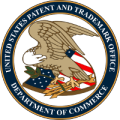US patent protects DRM system for 3D printing
 The US Patent and Trademarks Office (USPTO) has granted a patent to US IP licensing company Intellectual Ventures on a process designed to prevent illegal copying via 3D printers and other rapid manufacturing techniques. Patent number 8,286,236 refers to a manufacturing control system for the layered creation of objects, for instance via CAD construction files. The patented technology uses a digital watermark verification mechanism to ensure, for example, that a printer will only reproduce an object if the user is entitled to do so.
The US Patent and Trademarks Office (USPTO) has granted a patent to US IP licensing company Intellectual Ventures on a process designed to prevent illegal copying via 3D printers and other rapid manufacturing techniques. Patent number 8,286,236 refers to a manufacturing control system for the layered creation of objects, for instance via CAD construction files. The patented technology uses a digital watermark verification mechanism to ensure, for example, that a printer will only reproduce an object if the user is entitled to do so.
In an initial assessment of the patent, which was applied for in 2008, Michael Weinberg from the Public Knowledge digital rights organisation told Technology Review that Intellectual Ventures, led by former Microsoft CTO Nathan Myhrvold, is attempting to secure the ownership of a Digital Rights Management (DRM) system for 3D printing. The patent is "very broad" and also includes printing on "skin, textiles, edible substances, paper and silicon", said Weinberg.
Experts have long foreseen the transformation of physical production techniques into processes based around computer-aided drafting and production using 3D printers and similar rapid manufacturing devices. They believe that this could cause a "napsterisation" of classical manufacturing processes and of the industry that is based on them. They anticipate that Apple's old "Rip, Mix & Burn" motto will soon not only affect the digital music and movie world, but also the material world. In early 2012, the "Pirate Bay" torrent tracker web site established a dedicated "Physibles" area for CAD files and similar object manufacturing templates.
The patented DRM technology could benefit all those who want to prevent the unwanted reproduction of object templates on a growing number of increasingly affordable 3D printers at home and in "Fab Lab" establishments. However, Technology Review writes that, unlike digital music or movies, objects can't be copyrighted, making it more difficult to enforce the control technology. Therefore, additional rights on innovative technical processes or design elements would need to be put into place. As pointed out by Technology Review, DRM systems have not been successful in the music industry because consumers felt that they were too restrictive, preventing them from, for example, playing tracks purchased via iTunes on their non-Apple devices.
(Stefan Krempl / crve)
![Kernel Log: Coming in 3.10 (Part 3) [--] Infrastructure](/imgs/43/1/0/4/2/6/7/2/comingin310_4_kicker-4977194bfb0de0d7.png)

![Kernel Log: Coming in 3.10 (Part 3) [--] Infrastructure](/imgs/43/1/0/4/2/3/2/3/comingin310_3_kicker-151cd7b9e9660f05.png)
















